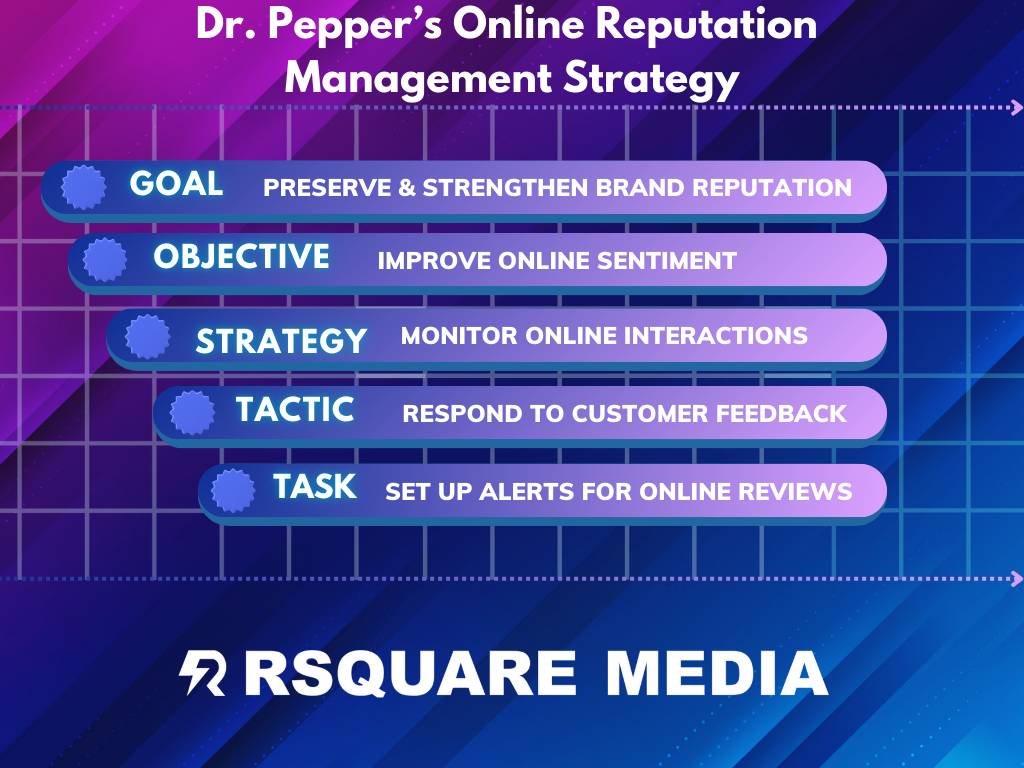In today’s digital-first world, maintaining a positive online reputation is no longer optional—it’s a necessity for businesses aiming to thrive. With the rise of social media, review platforms, and instant communication channels, information about your brand can spread rapidly, shaping public perception in moments. A single negative review or viral complaint can significantly impact consumer trust and purchasing decisions, making Mastering Online Reputation Management a cornerstone of any successful digital marketing strategy.
ORM involves actively monitoring online mentions, responding to customer feedback, and strategically curating content to highlight a brand’s strengths. It ensures that a company’s digital presence reflects its values, credibility, and commitment to customer satisfaction. By effectively managing online reputation, businesses can mitigate risks, turn negative experiences into opportunities, and enhance brand loyalty.
In this comprehensive guide, we’ll explore the importance of ORM, its role in digital marketing, and actionable strategies to help you monitor, manage, and enhance your brand’s online presence. Whether you’re a small business owner or a marketing professional, mastering ORM will empower you to build trust, foster customer loyalty, and drive long-term success in an increasingly competitive online landscape.

What is Online Reputation Management (ORM)?
Online Reputation Management (ORM) is the process of monitoring, identifying, and influencing digital content about your brand. In today’s digital world, consumers rely heavily on online information, reviews, and social media to make purchasing decisions. A single negative review or misleading article can significantly impact a brand’s credibility. Therefore, maintaining a strong, positive online presence is essential for business success.
ORM is not just about damage control; it is a proactive approach to shaping how a brand is perceived. This includes monitoring online conversations, responding to customer feedback, and optimizing content to highlight positive experiences. Engaging with customers through social media and review platforms helps build trust and loyalty. Additionally, businesses can leverage search engine optimization (SEO) techniques to ensure that positive, accurate, and relevant content ranks higher in search results.
A well-executed ORM strategy provides multiple benefits, such as:
- Increased customer trust and brand loyalty, leading to repeat business.
- Improved brand credibility and authority in the industry.
- Higher search engine rankings, making the brand more visible to potential customers.
- Enhanced customer satisfaction through active engagement and issue resolution.
- Greater revenue and long-term business growth due to a strong, positive reputation.
Investing in ORM is not just an option but a necessity in the digital age. A well-managed online reputation attracts new customers, protects brand image, and ensures long-term success in an increasingly competitive market.
To learn more about Online Reputation Management, click here.
Schedule your free discovery call here.
Fill out our intake form to help us understand your business goals and online visibility needs.
The Role of Digital Marketing in Online Reputation Management (ORM)
Digital marketing and mastering online reputation management are inseparable. A well-executed digital marketing strategy not only promotes your brand but also safeguards its reputation. With the digital landscape constantly evolving, businesses must proactively manage their online presence to build credibility and foster trust among their audience. Here’s how digital marketing and ORM work together to strengthen brand perception:
1. Social Media Management
Social media platforms are the heart of online conversations. Sites like Facebook, Instagram, Twitter, and LinkedIn allow brands to engage directly with their audience, build relationships, and address concerns in real time. A strong social media presence helps shape public perception, reinforce brand values, and showcase customer commitment. Additionally, social listening tools can help track mentions and sentiments, allowing businesses to respond promptly to feedback—whether positive or negative.
2. Search Engine Optimization (SEO)
SEO is a crucial component of ORM, ensuring that positive and brand-affirming content ranks higher in search results. By optimizing your website, blog posts, and online profiles with relevant keywords—such as “online reputation management in digital marketing”—you can increase visibility and push down negative or misleading content. High-quality backlinks, optimized metadata, and regular content updates help maintain a strong online reputation.
3. Content Marketing
Content marketing shapes your brand’s narrative by providing valuable, informative, and engaging content. Blog posts, videos, infographics, and case studies establish your authority in the industry and encourage positive interactions with your audience. Well-crafted content can also counteract negative press and misinformation by promoting transparency and thought leadership.
4. Review Management
Online reviews significantly impact consumer decisions. Platforms like Google, Yelp, and Trustpilot influence how potential customers perceive your brand. By actively monitoring and responding to reviews—both positive and negative—you can build credibility, resolve customer concerns, and turn dissatisfaction into loyalty.
By integrating ORM with digital marketing, businesses can proactively manage their reputation, foster trust, and ensure long-term success.
To learn more about SEO, click here.
You can click here for your free consultation.
Fill out our intake form to help us understand your business goals and SEO needs.
Key Components of Effective Online Reputation Management (ORM)
1. Monitoring Your Online Presence
Staying informed about what’s being said about your brand is the foundation of mastering Online Reputation Management. A proactive approach to monitoring and responding to brand mentions can help maintain a positive image and address potential issues before they escalate. Here’s how to do it effectively:
Use Monitoring Tools
Investing in the right monitoring tools can make mastering Online Reputation Management more efficient. Platforms like Google Alerts, Mention, and Hootsuite can track brand mentions across social media, blogs, forums, and news sites. These tools provide real-time notifications, allowing businesses to respond promptly to customer feedback, complaints, or praise. Quick responses show customers that their opinions matter, helping build stronger relationships.
Social Media Monitoring
Social media platforms are key areas where customers express their opinions. Regularly checking mentions, comments, and direct messages on platforms like Twitter, Facebook, Instagram, and LinkedIn helps businesses stay engaged. Prompt responses to customer concerns can turn a negative situation into a positive one, reinforcing brand credibility. Additionally, engaging with followers through likes, shares, and replies fosters trust and loyalty.
Review Site Monitoring
Online reviews significantly influence potential customers’ decisions. Sites like Yelp, Google Reviews, and Trustpilot are popular for customer feedback. Positive reviews can be leveraged as testimonials on marketing materials, while negative reviews should be addressed professionally. A well-handled complaint can demonstrate strong customer service and boost a brand’s reputation.
Sentiment Analysis
Understanding how people feel about your brand is essential. Sentiment analysis tools categorize feedback as positive, neutral, or negative, offering insights into public perception. This data helps refine marketing strategies and improve customer interactions.
Competitor Analysis
Monitoring competitors can reveal valuable opportunities. By analyzing their strengths and weaknesses, businesses can refine their strategies, differentiate their brand, and stay ahead in their industry.
By implementing these Online Reputation Management (ORM) strategies, businesses can maintain a strong and positive brand reputation
To learn more about SEO, click here.
You can click here for your free consultation.
Fill out our intake form to help us understand your business goals and SEO needs.
2. Responding to Reviews and Feedback
How you handle customer feedback can make or break your online reputation. Here’s how to do it right:
Timely Responses
Responding to reviews promptly shows that you value customer feedback and are committed to providing excellent service. Aim to respond within 24-48 hours to demonstrate your attentiveness and dedication to customer satisfaction.
Positive Feedback
When responding to positive reviews, express gratitude and appreciation. Acknowledge the specific points mentioned by the customer to show that you have read and valued their feedback. This encourages other customers to leave positive reviews and reinforces a positive brand image.
Negative Feedback
Negative feedback requires a careful and thoughtful approach. First, apologize for the customer’s experience and acknowledge their concerns. Offer a solution or ask for more information to resolve the issue. This not only shows that you care but also provides an opportunity to turn a dissatisfied customer into a loyal one.
Professional Tone
Maintain a professional and respectful tone in all your responses. Avoid becoming defensive or argumentative, as this can escalate the situation and damage your reputation further. A calm and constructive approach helps to de-escalate potential conflicts and demonstrates your commitment to customer satisfaction.
Public vs. Private Responses
For complex issues, it may be best to move the conversation to a private channel. This allows you to address the customer’s concerns in detail without airing the issue publicly. However, always acknowledge the feedback publicly first to show transparency and willingness to resolve the matter.
Learning from Feedback
Use the feedback to identify patterns and areas for improvement in your products, services, or customer service. Regularly reviewing feedback can provide insights into common issues and help you make necessary adjustments to enhance overall customer experience.
To learn more about SEO, click here.
You can click here for your free consultation.
Fill out our intake form to help us understand your business goals and SEO needs.
3. Leveraging Content Creation and SEO
Content and SEO are powerful tools for shaping your online reputation. Here’s how to use them effectively:
Create Valuable Content
Develop content that addresses the needs and interests of your target audience. Blog posts, articles, videos, and infographics can provide valuable information, answer common questions, and showcase your expertise. High-quality content positions your brand as an authority in your industry.
Implement SEO Best Practices
To ensure your content ranks well on search engines, it’s crucial to follow SEO best practices. Use relevant keywords such as “online reputation management in digital marketing” naturally throughout your content. Optimize meta descriptions to improve click-through rates, structure your content with proper headers (H1, H2, H3), and include both internal and external links to provide valuable references. A higher search engine ranking enhances visibility, ensuring that positive content about your brand dominates the search results.
Push Down Negative Content
Unfavorable content can harm your brand’s reputation. To combat this, create and promote high-quality, positive content to push negative search results further down. Strategies include publishing customer success stories, testimonials, and case studies, which highlight your brand’s positive impact. Additionally, maintaining active blogs and press releases can help reinforce your brand’s credibility.
Engage Your Audience
Encouraging interaction with your audience helps build trust and loyalty. Create engaging content such as polls, quizzes, Q&A sessions, and discussion forums to foster meaningful conversations. Increased engagement can lead to more shares and visibility, strengthening your brand’s reputation across various online platforms.
Build High-Quality Backlinks
Acquiring backlinks from authoritative websites enhances your content’s credibility and boosts its search engine ranking. Guest blogging, forming partnerships, and collaborating with influencers are effective ways to secure high-quality backlinks. A strong backlink profile improves your brand’s online authority and helps control the narrative around your reputation.
Monitor Content Performance
Regularly analyze your content’s performance using tools like Google Analytics. By tracking key metrics such as traffic, engagement, and conversion rates, you can refine your strategy and focus on producing content that positively impacts your online presence.
Update Content Regularly
Consistently refreshing existing content and publishing new material signals to search engines that your brand is active and authoritative. Regular updates improve SEO rankings and demonstrate that your business is committed to providing current and relevant information.
By implementing these strategies, you can effectively manage your online reputation, ensuring that positive content takes center stage in search results.
To learn more about SEO, click here.
You can click here for your free consultation.
Fill out our intake form to help us understand your business goals and SEO needs.
Practical Implementation of Online Reputable Management Strategies
With mastering Online Reputation Management, you need a proactive and strategic approach. Your brand’s online presence directly influences customer trust and business success.
Here’s a step-by-step guide to effective Online Reputation Management (ORM):
- Monitor Your Online Presence: Utilize advanced tools like Google Alerts, Brand24, or Hootsuite to track brand mentions, reviews, and sentiment across multiple platforms. Staying informed helps you address potential reputation issues before they escalate.
- Respond to Feedback: Actively engage with customer reviews and comments, whether positive or negative. A prompt, professional, and empathetic response builds trust and demonstrates that you value customer opinions.
- Create and Optimize Content: Regularly publish high-quality blog posts, videos, and social media updates that align with your brand’s message. Optimizing content for search engines ensures that positive content ranks higher, pushing down negative mentions.
- Engage with Your Audience: Foster strong relationships with your audience through interactive social media posts, Q&A sessions, and community discussions. A loyal and engaged audience helps protect your brand’s reputation.
- Analyze and Adapt: Continuously assess your Online Reputation Management (ORM) efforts using analytics tools. Identify trends, measure impact, and adjust your strategy to enhance your brand’s online presence.
By following these steps consistently, you can effectively manage and enhance your brand’s reputation.
To learn more about SEO, click here.
You can click here for your free consultation.
Fill out our intake form to help us understand your business goals and SEO needs.
Conclusion
In the fast-paced digital world, online reputation management (ORM) is a crucial element of any successful digital marketing strategy. Your brand’s online presence significantly influences customer perception, trust, and purchasing decisions. By proactively monitoring mentions across social media, review sites, and search engines, you can quickly address feedback—both positive and negative—before it impacts your reputation. Thoughtful and timely responses to customer reviews demonstrate transparency and commitment to customer satisfaction, fostering a strong and trustworthy brand image.
Additionally, leveraging content creation and search engine optimization (SEO) allows businesses to highlight their strengths, showcase expertise, and push positive narratives to the forefront. High-quality blog posts, press releases, and social media updates can enhance brand visibility and counteract negative publicity. A well-managed reputation not only builds trust and credibility but also improves customer retention and attracts new opportunities.
Investing in Mastering Online Reputation Management ensures that your brand stands out in an increasingly competitive digital marketplace. A strong online reputation can lead to higher search rankings, increased traffic, and ultimately, greater business success. By prioritizing reputation management, businesses can cultivate long-term customer relationships, foster brand loyalty, and maintain a positive presence in the ever-evolving digital landscape.
Ready to Enhance Your Online Reputation?
Schedule a Free Consultation: Click here to book your discovery call.
Fill Out Our Intake Form: Help us understand your business goals and online visibility needs.
By taking these steps, you can ensure your brand’s online reputation remains strong and positive in the ever-evolving digital landscape.






